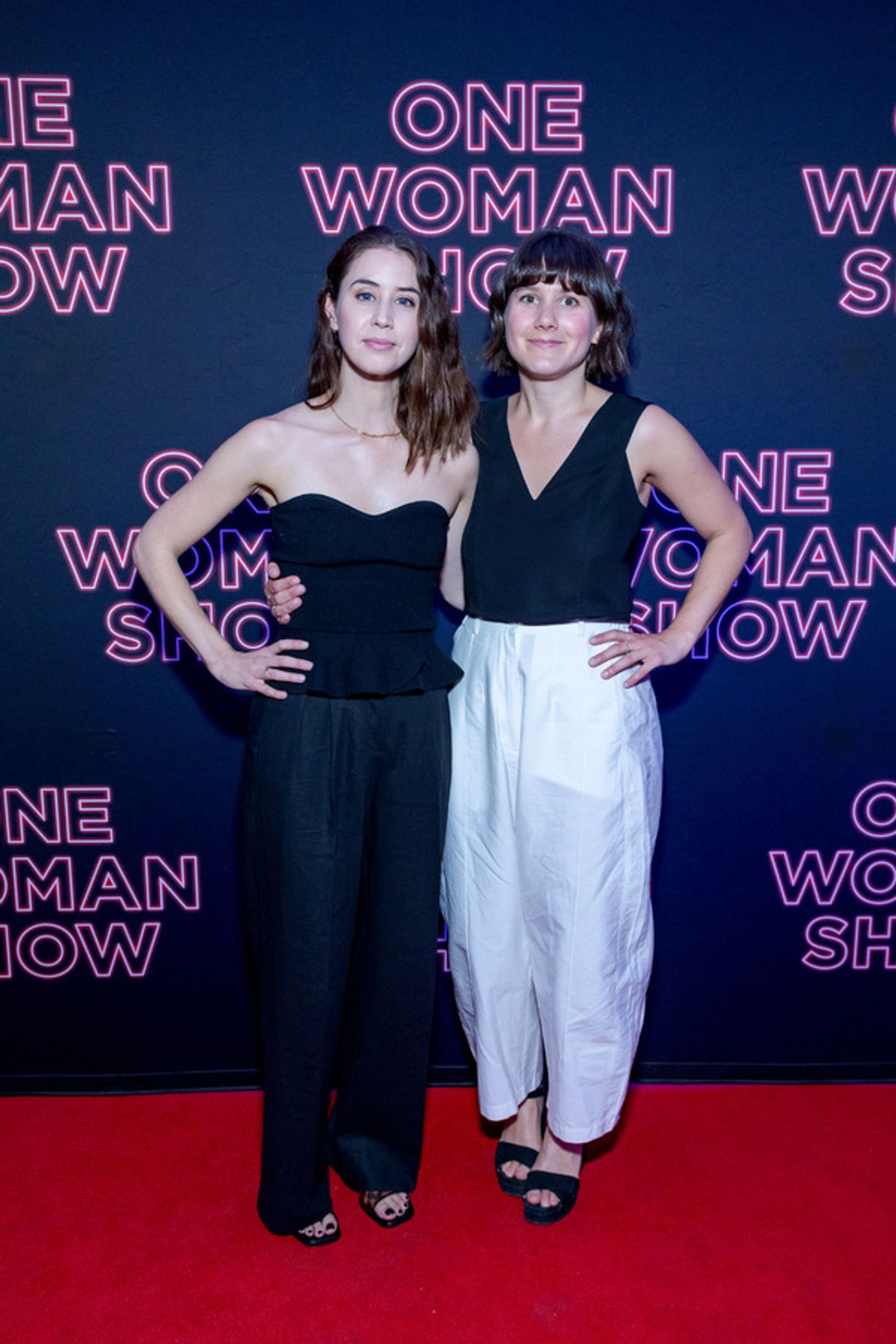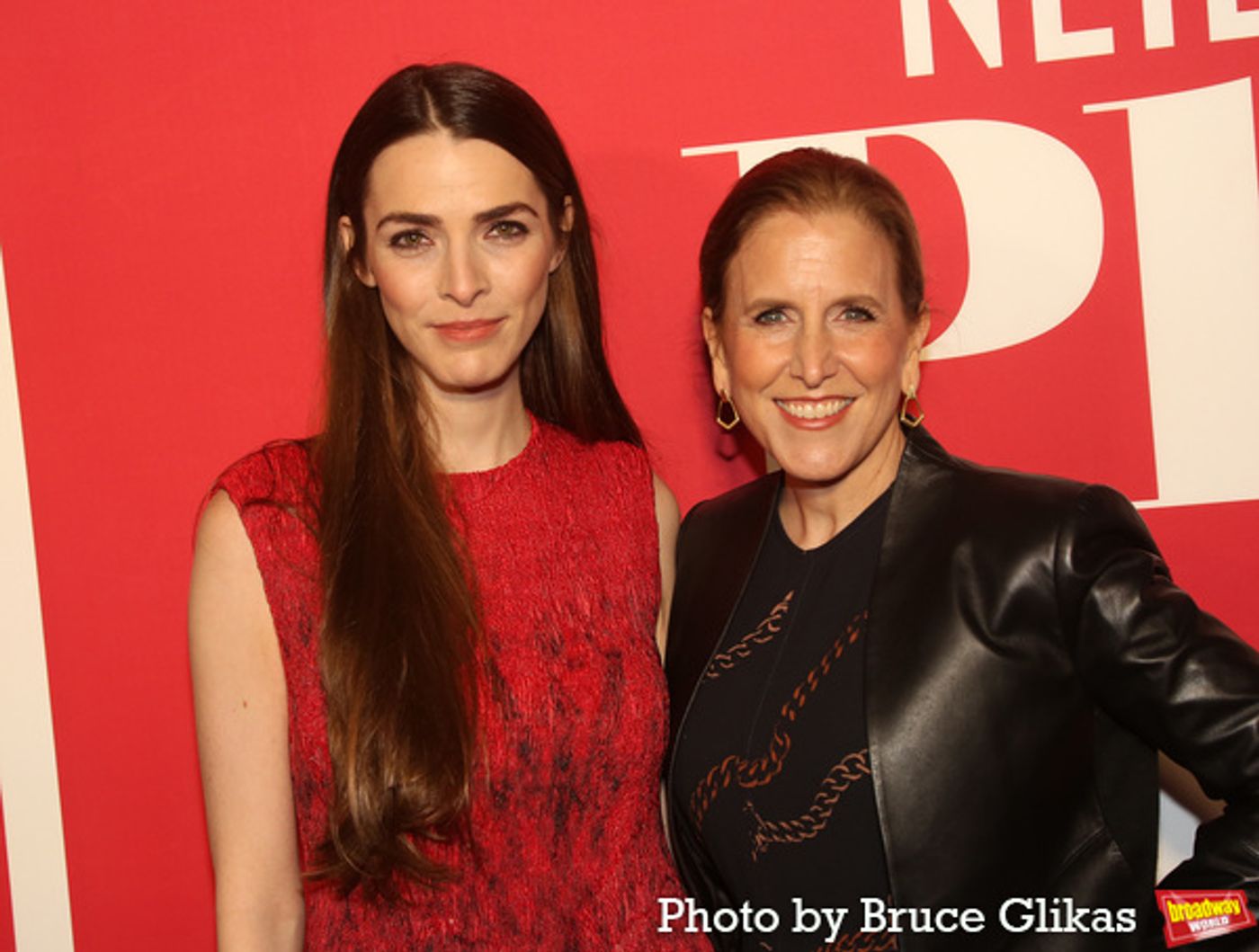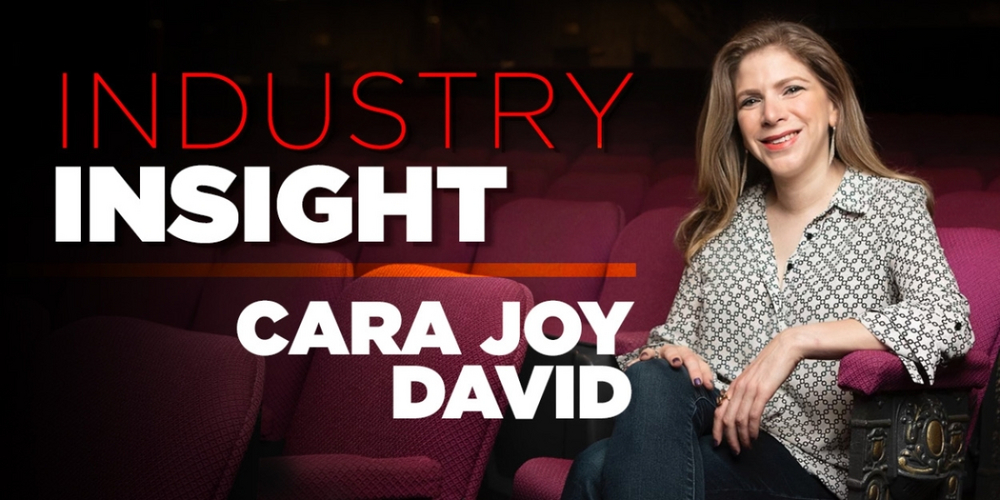Powerhouse Women United to Bring ONE WOMAN SHOW to New York
Lead producers Wessex Grove, Ambassador Theatre Group Productions (ATG) and Bad Robot Live each have a woman in her 30s shepherding the project.
Liz Kingsman’s One Woman Show arrived at off-Broadway’s Greenwich House Theater with what The New York Times’ Jason Zinoman called “enough buzz for an apiary.” The Olivier Award-nominated comedy had over twenty five-star reviews from overseas and the type of coverage that one only associates with the next big thing. But what is equally as remarkable is all of the lead producers have teams led by women, which is still a rarity even in 2023.
Written and performed by Kingsman, One Woman Show is a parody of one woman shows and the feminine tropes they often traffic in. So, it is not surprising that women would be drawn to it. In a joint video call, representatives from producers Wessex Grove, Ambassador Theatre Group Productions (ATG) and Bad Robot Live each spoke effusively about the project.

(Photo by Rebecca J. Michaelson)
Emily Vaughan-Barratt, who, with Benjamin Lowy, heads Wessex Grove, was the first of the producing team to see it, catching the show’s sold-out engagement at the Soho Theatre as
a paying customer in February 2022. “After I saw it, I sent this kind of very fan girly email to Liz and to her two producers who were producing it at the time, being like: ‘This is the best thing I’ve ever seen,’” Vaughan-Barratt explained. “I don’t remember the last time I saw something written and performed by someone who felt like part of my demographic. I was like: ‘Oh, wow, this is a piece where I know who this audience is. I am this audience.’”
Kingsman had many wanting to transfer the show, but Vaughan-Barratt (who previously worked at ATG) won out after quite a bit of hustling and a meeting where she really connected with the artist. When One Woman Show was first announced for the West End, Wessex Grove was the only announced producer, but by the time it had announced a theater and dates, ATG and Bad Robot Live had signed up. It marks the inaugural production of the ATG and Bad Robot Live partnership, so it’s a pretty big deal.
Elizabeth Rothman, who leads Bad Robot Live, said she began researching the show after being alerted to it at a lunch. “I looked up the reviews and, in 12 years, I’d never seen reviews like this,” she said. “They didn’t say what it was, they just said it was amazing.”
Rothman compiled a review packet, uncovered Vaughan-Barratt’s involvement, and went to ATG’s Kristin Caskey and Bee Carrozzini with the project. Joint discussions were had. (Rothman stressed that Bad Robot CEOs Katie McGrath and J.J. Abrams immediately jumped on her recommendation—“there was not even a moment of hesitation” internally.) And that’s more or less how the partnership came to be.
“Bee, Emily and Elizabeth have really been the leaders on the show,” Caskey said, giving credit to producers all in their early-to-mid 30s, which is Kingsman’s age range as well. “They approached it with the framework of: [We] want to work with women of our generation, have us grow together, have us support projects that speak to the women of our generation and build from there.”
One Woman Show has been called a Fleabag parody—and working knowledge of Fleabag probably will enhance your enjoyment—but the tropes it tackles are much more universal. Indeed, if you watch the video for Olivia Rodrigo’s new song, “Vampire,” you may think the pieces are in conversation with each other.
Even though we’re in an era of greater examination of feminine tropes, there is still the proliferation of them worldwide. One Woman Show picks apart many. The producers also each have their least favorite. For Carrozzini it is the “cool girl who is just one of the guys, loves sports, eats junk food, never complains, and, of course, is always beautiful and thin.” For Vaughan-Barratt it is the idea that “women aren’t funny.”
“What drives me crazy is that I feel like time and time again, we see women represented as messy,” Rothman said. “They’re just stumbling through life. And that’s never been my life experience. Not to say I haven’t stumbled, but I’m a person who works really hard and tries. And I am like: ‘Where’s the character that likes to go to the library?’ I understand that's less interesting, but there’s more work to do to see women who are strong and complicated and really climbing those hills with aplomb.”
Rothman acknowledged that this particular pet peeve might be partially why she was drawn to One Woman Show: the central, can’t miss it, target the show takes aim at is the “messy woman.” The knowing boss—because obviously there is one of those—even challenges the central character with: “You’re not a mess, you just want to be seen as one.”
“The main joke of the show, everybody gets that,” Rothman said. “It is so meaningful to me and Emily and Bee, in particular, because we’re all around the same age and it’s speaking to our life experience. It’s exactly the kind of ceiling we want to crack.”
Continually throughout the conversation, the women spoke of all the other women who have supported them on their journey. Vaughan-Barratt said prior to the show’s West End run, she had been trying to secure a West End theater for many months, but it was not until a younger woman from ATG programming saw the show at Edinburgh that it got one. (The West End run turned a profit, so “she made the right call,” Vaughan-Barratt noted.) The plan was always to bring it to New York and they knew that would require even more help. Lorne Michaels’ Broadway Video (a connection made through a producer with the company, Caroline Maroney, who is friends with Rothman), Kater Gordon, Wagner Johnson Productions, Liz Armstrong, Fiona Rudin, Rebecca Gold, and Jayne Baron Sherman all signed on to produce. And they had more support as well.
“We basically raised most of the investment from women,” Vaughan-Barratt said. “We have some amazing women involved here: Daryl Roth, Paula Wagner, Meena Harris, Eileen Davidson, Caroline [Maroney], who works for Lorne Michaels. They are an expansive network—not all necessarily exactly from theater—who are promoting and advocating and coming up with interesting ideas and telling interesting people to come. For me, this is the first time that I’ve ever had pretty much any female investors and any women to discuss anything with. I’ve loved it so much.”

The woman all spoke of the desire to not only support each other, but to support Kingsman as an individual as well. Carrozzini and Rothman separately called her a “singular” talent. Vaughan-Barratt referred to her as “exceptional.”
“[It is] also about supporting Liz in her journey,” Caskey said. “Because I think one of the challenges that we talked about as a group was: ‘How do you move from that level of creation to having it really get out there in a way where it supports not only the show, but also Liz and her career?’”
One of the lines in the show references how the media “decide[s] which woman is going to be successful” each year. And Kingsman herself has been labeled by several in the media as the new “Queen of Comedy,” implying that this is her turn. That’s a solid selling point, but the producers have been careful not to use the phrase in any ads because Kingsman does not want to engage in an idea she mocks.
So then the question becomes how to market it. The name One Woman Show leads naturally to the question: “But what is the name of it?” The website is purposely vague as to what it is. Vaughan-Barratt admitted “it’s always been hard to explain what it is because of how meta it is,” emphasizing that word-of-mouth and rave reviews were previously the secrets of the show’s success. It’s certainly not solely for women—the director is a man (Adam Brace, who sadly passed away before the transfer), the men on the producing team have been “supportive and additive” as per Rothman, and a lot of those positive reviews came from men. Nothing succeeds without allies. However, the marketing of the production in New York has been women-centered. Caskey, who has been producing for decades, believes the support for it among the press has been encouraging, evidence of women supporting women.
“Our press team is two women [Leslie Papa and Whitney Holden Gore of Vivacity Media] who made a significant outreach to female writers and people on editorial teams to come and see the show and provide support, which for off-Broadway is always a challenge,” Caskey stated. “The response and interest we’ve gotten has been fantastic. For me, it is very emboldening for the future because, on the production side, we have a number of women really trying to shepherd female-driven work, but in order for it to get seen and heard… we need people to celebrate it and to see it in the way it’s meant to be seen.”
While they say having a female-led production team wasn’t a “deal breaker” for Kingsman, it all fell into place in a way that seems right. The producers all want to grow the network of female producers—Rothman and Vaughan-Barratt referenced taking coffees and arranging calls with those who seek help. The younger women talk about the women senior to them who have paved the way and continue to improve workplaces for women: Carrozzini cited Caskey and Wendy Orshan from 101 Productions; Rothman referenced McGrath; Vaughan-Barratt mentioned ATG founder Dame Rosemary Squire, Chichester Festival producer Kathy Bourne, and Caskey.
“Liz mockingly in the show talks about gatekeepers and in London, and I think it’s probably the same on Broadway, a lot of the gatekeepers are men,” Vaughan-Barratt asserted. “As a result, it’s hard sometimes to get content and work on that isn’t about what the gatekeepers perceive as what makes commercial theatre. And I think that, as time goes on, there are more women who are in powerful positions, like Kristin, that then support work of people at an earlier stage in their career.”
Female producers first-billed on Broadway projects currently include Sonia Freidman, Jenny Gersten, Mara Isaacs, Carmen Pavlovic, Lia Vollack, Fran Weissler (with her husband Barry), and Beth Williams (via Grove Entertainment). That’s a huge improvement over decades ago and reason to cheer, but there is still more work to be done. Notably, very few of the pieces they are producing were written by women. Women playwrights are still famously underrepresented on Broadway. Of the straight plays that opened during the 2022-2023 season, only six were written solely by women, with another two adaptations. Whereas male playwrights received sixteen productions (if you include Dickens’ A Christmas Carol, which in fairness did have one woman on its three-person adaptation team). Female playwrights are also not commonly represented on the West End—Vaughan-Barratt said it is always “The Mousetrap and one other.” When One Woman Show was on the West End, there was even a line about this dearth. It is harder to pinpoint season numbers off-Broadway, but out of the twenty-two currently running off-Broadway productions, Kingsman, Candrice Jones (Flex), Deirdre Kinahan (The Saviour), Marla Mindelle (one of three book writers on Titanique), and Rose Caiola (one of three book writers on Rock & Roll Man) are the only female writers represented.
The producers’ support of One Woman Show was done with this reality as its backdrop, but it was not done because of this reality. The teams signed on because they thought the show was hilarious and they wanted to be a part of it. However, the journey has been informative.
“I’ve realized that we need to do better and we need to commission and work with more women and equalize it up,” Vaughan-Barratt declared.
Cara Joy David, BroadwayWorld’s Industry Editor, writes the Industry Trends column for the weekly Industry Pro Newsletter. You can read past columns and subscribe here. If you have an idea for the column, you can reach her at cara@broadwayworld.com.
Videos


